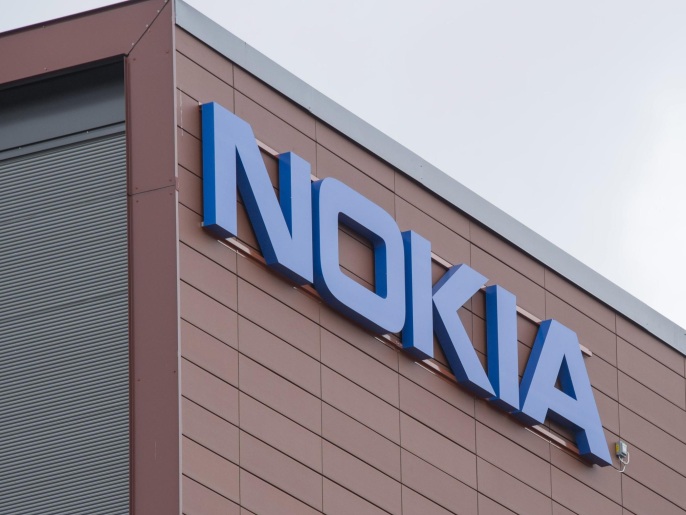The European Union seeks to carve out a space in the digital economy by playing a regulatory role in this field, given its lack of a strong technological sector of its own, and it is trying to protect the rights to privacy and data sharing by taking advantage of its massive unified market against giants such as Google and the social networking site. Facebook.
But a report in the New York Times by writers Stephen Erlinger and Adam Stariano, shows with recent examples that this is not enough for Europe, where the authors say that the rapid pace of technological change - including artificial intelligence and facial recognition techniques - is mixed more than any other. Time passed with national security concerns that European leaders have been slow to absorb and respond to.
As China and the United States lead the battlefield in the global technology war, Europe finds it very difficult to find its way in this area.
"Europe needs to work together ... I am concerned that the pace is too slow for the pace at which the changes will take place," said Mariette Schaquet, director of international policy at Stanford University’s Center for Electronic Policy and a former member of the European Parliament.
The TikTok crisis is the latest example of this. The famous Chinese short video application, which US President Donald Trump's administration is trying to restrict, using many of the national security arguments it used against Huawei, the Chinese telecom giant, when It tried to curb its ambition to become the world's dominant provider of 5G networks.
Such frequent disputes between Beijing and Washington have left European leaders, regulators and industries under great pressure, fearing retaliation from auto makers, financial services firms, or agricultural firms if they choose one side over the other.
Europe finds itself caught between China and America in the technology war
Digital Sovereignty
To ease this pressure, European leaders recently embarked on a project called "digital sovereignty", combining tougher rules and laws against foreign technology companies with redoubling efforts to boost domestic innovation.
Margaret Westager, Vice President of the European Commission in charge of digital issues, described the project as a "new phase" for technology policy in the region.
Analysts say these policies will take years to usefully shift the balance in Europe's favor, and many question whether they are truly sufficient to bridge the technology gap with the United States and China.
"With the combination of competition, artificial intelligence and security, it makes sense for some policymakers to feel anxious," said Andreas Actodianakis, a digital policy analyst at the European Policy Center, a think tank in Brussels.
He added, "Europe wants to regulate artificial intelligence and other technologies, but it is slow and there is no real timetable .. We are late to catch the train."
In turn, Gerard de Graf, Director of the European Commission’s Single Digital Market, said that the European Union needed "more cooperation between member states on the issue of security."
But Francesca Priya, head of Italy's National Innovation Fund, argued that Europe risks being under pressure between the Chinese state model - represented by Huawei, WeChat, Alibaba, Tencent and TikTok with its government support - and the major tech watchdog companies of the American giants.
"If we fail to regain digital sovereignty, we risk becoming a colony trapped between the United States and China," with great risks to our democracy, she said.
Priya explained that US technology stocks alone are more valuable than the entire European stock market, "Europe must remain relevant as a global economic power, not just a regulatory power."
Europe has fallen from the list of the most powerful technology companies in the world since the fall of Nokia (European)
Nokia's collapse
European weaknesses in the field of technology are glaring, as the world's most famous smartphones are manufactured in China, South Korea and the United States, and the largest social networking sites and applications and online shopping platforms come from American and Chinese companies, as well as the largest providers of cloud computing and artificial intelligence services.
Europe has dropped from the list of the most influential technology companies in the world since the fall of Nokia about a decade ago, due to, among other things, a lack of investment capital, language barriers, and a cultural aversion to risk. European companies have also struggled to keep up with the pace of entrepreneurship in the technology industry that is now dominated by devices. Portable and online services and online communication tools.
Although Europe has tried to influence the digital economy through regulation, adopting strict data protection rules and forcefully imposing antitrust laws, European leaders are aware of the limits of those efforts, especially since their citizens depend on Amazon, Apple, Facebook and Google in the absence of European alternatives.
Noah Barkin, a visiting member of the German Marshall Fund, said Europe's lack of influence ultimately stemmed from the dearth of influential technology companies, and Europe will face this dilemma for years as China and the United States struggle for technological supremacy.
"Europe has not developed its own global digital companies to compete with the big American and Chinese companies, and this is all about digital sovereignty ... Europe cannot be just a regulator," he added.
Rebecca Arsati, an analyst at the Mercator Institute for Chinese Studies in Berlin (MERICS), said that Europe’s plans for “digital sovereignty” remain vague. “This is a discussion point, but there is still a long way to go before Europe can develop its digital champions ... That would be too late. "

